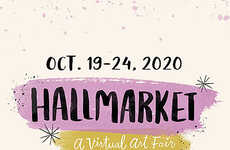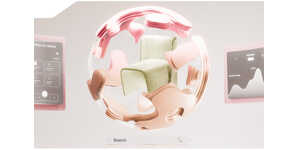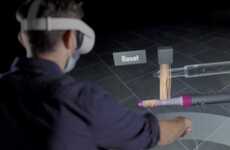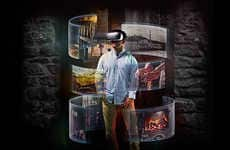
This Online Art Marketplace Uses Virtual Reality to Sell Products
Ellen Smith — May 23, 2017 — Art & Design
An online marketplace has been created using virtual reality to encourage those who may be intimidated by art auctions to purchase art. Specializing in licensed art prints, Austin-based startup Twyla offers limited edition prints that are individually numbered and signed by the artists.
Before purchasing the art work, viewers are invited to put on Samsung Gear VR headsets that feature the specific art work -- helping the potential buyer imagine what the artwork would look like inside a home. Each room was specifically designed by Tom Hancocks and centers around the concept of the art work being displayed.
With the help of virtual reality, little is left to the imagination with regards to what the painting looks like hung up, providing a more persuasive argument for the purchase of the painting than an art dealer could do.
Before purchasing the art work, viewers are invited to put on Samsung Gear VR headsets that feature the specific art work -- helping the potential buyer imagine what the artwork would look like inside a home. Each room was specifically designed by Tom Hancocks and centers around the concept of the art work being displayed.
With the help of virtual reality, little is left to the imagination with regards to what the painting looks like hung up, providing a more persuasive argument for the purchase of the painting than an art dealer could do.
Trend Themes
1. Virtual Reality in Online Marketplaces - Embracing virtual reality technology in online marketplaces can enhance the customer experience and help overcome barriers to purchasing.
2. Personalized Virtual Reality Experiences - Offering personalized virtual reality experiences can help customers envision products in their own homes before making a purchase, increasing their confidence in the buying decision.
3. Immersive Art Exploration - Utilizing virtual reality to create immersive art exploration experiences allows potential buyers to fully engage with the artwork and make more informed purchase decisions.
Industry Implications
1. E-commerce - Integrating virtual reality technology into e-commerce platforms presents opportunities for retailers to provide a more immersive and interactive shopping experience.
2. Art Market - Virtual reality can disrupt the art market by enabling online art marketplaces to offer virtual galleries and immersive exhibitions that attract more buyers.
3. Home Decor - Incorporating virtual reality technology into the home decor industry allows customers to visualize how products would look in their spaces, leading to increased sales and reduced returns.
6.2
Score
Popularity
Activity
Freshness























